Russia’s full-scale invasion of Ukraine has been heralded as marking the end of the post-Cold War period, and the start of (or return to) a more dangerous era of great power conflict. Given China’s recent reaffirmation of its “no limits” partnership with Russia, and the release of an unprecedented Sino-Russia joint statement just 20 days before Russian President Vladimir Putin’s attack on Ukraine, Beijing’s role in Putin’s war of aggression has rightly come under scrutiny. While it’s still too soon to know how the war in Ukraine ends and what role Beijing will play through its course, China’s choices will be pivotal in shaping not just the outcomes of the immediate crisis, but also the new order that rises from the ashes.
Beijing the duped bystander or enabler?
There’s been much debate about whether and to what extent Chinese President Xi Jinping knew about Putin’s coming invasion. Some experts have made the case that Beijing seems to have been “played” by Russia, citing its distrust of Western intelligence and most critically, the failure of the Chinese embassy in Kyiv to evacuate the 6,000-plus Chinese nationals in Ukraine. A recent bombshell report in the New York Times suggests that “senior Chinese officials had some level of direct knowledge” of Moscow’s plans and warned their Russian counterparts not to invade before the end of the Beijing Winter Olympics. The report does also note, however, that there were “varying interpretations” by different intelligence services.
We may never find out exactly how much was known about Putin’s plans in Beijing and what, if anything, was done in response. It could be that Chinese leaders genuinely believed Russia’s “special military operation” would be limited and not include “strikes on cities,” as Foreign Ministry Spokesperson Hua Chunying suggested at her February 24 press conference. Nevertheless, given the buildup of Russian troops near Ukraine’s borders, Chinese officials should have known there was always the risk of a violent conflict and blatant violation of Ukraine’s territorial integrity.
The fact that Beijing decided to express “sympathy and support” for Moscow’s security demands to the United States and NATO, in spite of this risk, was irresponsible to say the least and clearly undermines Beijing’s claims to be a neutral party and defender of state sovereignty.
Beijing’s next steps
Beijing’s actions or inactions in the days leading up to the Russian invasion of Ukraine deserve scrutiny. With war now underway, however, a more urgent line of inquiry is how its choices in the coming days and weeks will incentivize or hinder a quick cease-fire and meaningful negotiations.
In the earliest days of the conflict, Beijing continued to support Moscow by refusing to condemn its invasion of Ukraine. Its leaders repeatedly emphasized the “special historical complexities” of the “Ukraine issue” and “Russia’s legitimate security concerns,” and essentially blamed the United States and NATO expansion for driving Moscow into a corner.
As Russia’s assault on Ukrainian cities deepens and global outrage mounts, Beijing seems to have slightly watered down its defense of Moscow. It chose to abstain, rather than outright veto, both the United Nations Security Council resolution and U.N. General Assembly resolution condemning Russia’s war of aggression. Last week, Foreign Minister Wang Yi expressed in a call with his Ukrainian counterpart that the situation in Ukraine has “changed rapidly and dramatically” and that China was “deeply grieved” and “highly concerned about the damage done to civilians.”
Just yesterday, Wang Yi noted in a press conference that China would serve as a mediator in the crisis and planned to send emergency aid to Ukraine. But he also doubled down that China-Russia relations remain “iron clad” and would not be subject to “discord sown by third parties,” which does not inspire optimism. Beijing’s stance thus far indicates while Chinese leaders may be feeling the downsides to overtly siding with Russia, they are still far from changing course.
While there have been suggestions that “a phone call from Xi” could stop Putin’s war of aggression, it seems highly unlikely that a word from Xi can force Putin to stop an invasion that he’s already begun. This is not to say that China doesn’t have any influence. As Russia’s closest strategic partner and potential economic lifeline in the face of global isolation, Beijing arguably has greater sway with Moscow than any other state.
Chinese leaders, however, have made clear that they oppose on principle the use of unilateral sanctions “that have no basis in international law” and that they will continue “normal trade cooperation” with Russia, having recently signed a number of energy and food deals. But as analysts point out, China has much more to lose by jeopardizing its trade with the United States and Europe than to gain through preserving its economic ties with Russia.
What will Beijing do if the fighting drags on? Will Chinese businesses and banks continue to quietly comply with sanctions to protect their economic bottom lines, as early reporting suggests? Or will Beijing’s claims of its unshakeable friendship with Moscow manifest in substantive efforts to blunt the impact of sanctions for Russia even at a significant cost to China, enabling Moscow to dig in its heels? Such a development would be an ominous indicator that China-Russia strategic coordination truly has “no limits.” Or will Xi make good on his support for a diplomatic solution to the crisis, as he just reiterated on a call with French President Emmanuel Macron and German Chancellor Olaf Scholz, and use his close ties with Putin to urge the Russian leader to stop killing innocent civilians and to negotiate in good faith instead? Demonstrating such efforts, rather than taking the path of least resistance, would help Beijing recover at least some of the damage that’s been done to its reputation.
China at the crossroads
Until Russia launched its assault on Ukraine, Chinese leaders probably saw little downsides to their deepening ties with Moscow. They saw strategic value in having a great power partner who was also aggrieved by “Western hegemony,” and could jointly push back on “encirclement” and “interference” by the United States and its allies. And as Beijing began to place greater emphasis on assembling its own web of like-minded partners with an eye to long-term competition with Washington and its alliance network, as I recently wrote in Foreign Affairs, it seems to have become less willing to call out the egregious behavior of its partners, including Russia and North Korea.
Today, many in China are likely reexamining the costs of aligning closely with Russia as they watch the expanding scale of Putin’s assault on Ukraine, the global outrage and unified response this has provoked, and the scrutiny that has been brought onto China’s role in the crisis as a result. The timing could not be worse for Xi, who needs a smooth and stable ride to the 20th Party Congress this fall where he’s expecting to secure an unprecedented third term in office.
It’s not yet clear where the debate will land in Beijing — that is, whether to dig in its heels to keep its strategic partners close, even at a great price, or to use its influence constructively and opt for more balanced ties with states around the world.
Its calculations will likely include assessments of how much China will gain from its ideological comradery with the likes of Russia and North Korea, and whether this solidarity will pay concrete dividends if China is ever caught in a serious escalation with the United States, perhaps over Taiwan or some other core issue; whether China can sustain economic growth and prosperity in isolation from its Western counterparts; and whether the Chinese people will tolerate the profound economic and diplomatic costs and their inability to access the broader world. Walking through these questions, it seems that China has much more to gain and to contribute by maintaining balanced ties around the world, rather than huddling with just a few rogue allies.
But Beijing will make its own assessments, and its conclusions will be formative for the order that emerges from this crisis. They will dictate whether we see the crystallization of a divided world with China at the helm of the autocratic half, or an international arena that is less divided but more diverse, in which global civil society can agree to stand by fundamental principles such as state sovereignty and territorial integrity. As we’ve learned from history, a world starkly divided into two opposing camps is dangerous and prone to instability. China and the rest of the world will be much better off if Beijing opts to throw its support to a global order underpinned by basic principles that are essential for states to peacefully coexist.
The Brookings Institution is committed to quality, independence, and impact.
We are supported by a diverse array of funders. In line with our values and policies, each Brookings publication represents the sole views of its author(s).

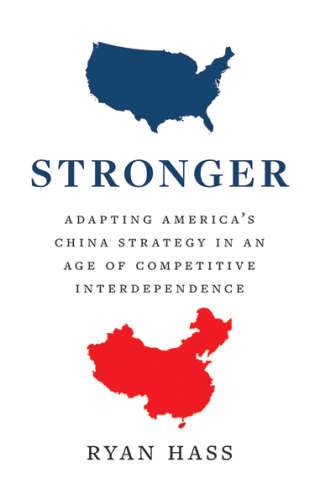
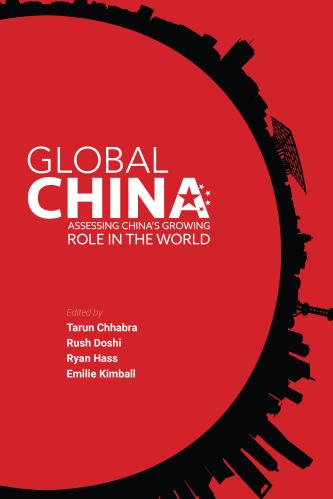
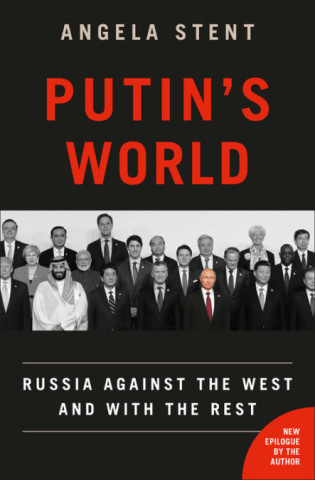
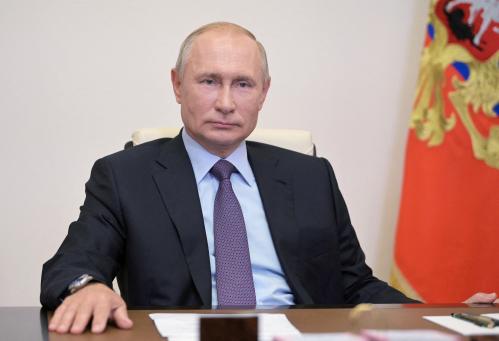
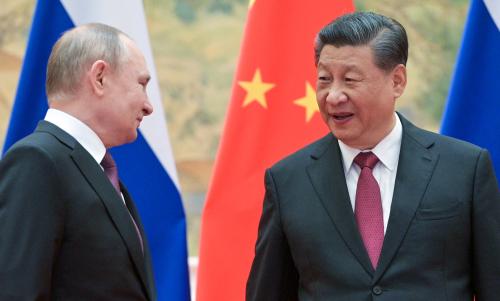
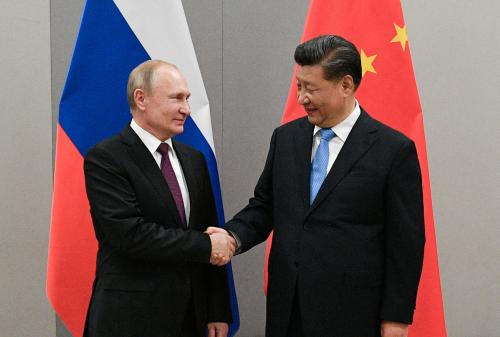




Commentary
China’s choices and the fate of the post-post-Cold War era
March 8, 2022